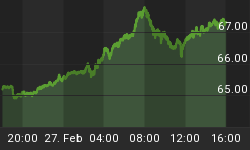President Trump loves to use the auto industry as a bargaining chip. In May, he asked the Commerce Department to investigate whether a national security law could be used to impose hefty tariffs of up to 25 percent on car and auto part imports into the United States, mainly targeting Europe and China.
Although the tariffs are yet to be implemented, the damage has already been done. Global auto sales are on track to record the biggest slowdown since the 2008 financial crisis as a confluence of factors--including unfavorable global trade policies and high commodity prices--meets falling consumer demand.
Not surprisingly, Europe and China are expected to record the largest slowdowns.
Demand in Europe is already starting to drop to pre-recession levels. Meanwhile in China, new car sales fell 5.3 percent to 1.59 million units in July due to worsening trade tensions with the U.S. Although full-year forecasts still call for a 1.2 percent growth, it will mark a sharp slowdown compared with growth of 13 percent in 2016 and 2.1 percent in 2017. China is the world’s largest auto market with 28.6 million new cars sold in the country last year.
America Hard Hit, Too
But most alarming is the fact that demand for American vehicles, considered a universal global catalyst, has also hit a wall due to economic factors such as higher prices and rising loan rates as well as political ones amid a growing “don’t buy American” media wave. Related: Markets See Mixed Sentiment After Hitting A Record High
A key reason for that are retaliatory tariffs by Beijing, which now taxes U.S.-built vehicles an impossible 40 percent levy on import. Major American automakers including Ford and Fiat Chrysler Automobiles have been counting on selling more in the Chinese market in order to cut their high dependence on North American sales. That is not being helped by soft demand in Europe, where many American companies have been struggling to maintain profitability.
The situation is already dire—all major American manufacturers posted a sharp sales decline in July, led by a massive 15 percent plunge at Nissan Motor. The mere anticipation of more tariffs prompted the auto industry to cut back spending on incentives thus snapping a long 55-month streak of increases.
After peaking in 2016 at 17.5 million units, U.S. new vehicle sales are now on track to post the second consecutive year of sales decline.
Not all of it can be pinned on trade tensions though.
According to Charlie Chesbrough, senior economist for Cox Automotive, buyers are increasingly turning to used-car lots where there are great deals to be had even as auto makers pull back on new-vehicle incentives. Returns of leased vehicles has also been climbing, and the extra supply gives consumers a wider choice of lower-priced alternatives.
Actual Tariffs Will Escalate the Damage
It’s going to be a lose-lose proposition if Trump barrels ahead with the planned tariffs especially in Europe.
Related: Telcos Caught Between Big Government And Customer Privacy
The EU has estimated that duties of 25 percent would cut U.S. imports of cars and car parts by half and lead to the loss of at least 180,000 American jobs. The U.S. imported automobiles and car parts worth 294 billion euros last year, with 58 billion euros originating in the EU. The U.S. is the largest importer of EU cars, with cars making up a fifth of the region’s exports.
Major U.S. importers of European cars General Motors, Nissan and Fiat did brisk business during the first half of the year as customers rushed to buy ahead of the tariffs.
Potential tariffs on both imported cars and auto parts will no doubt make the unfolding scenario a lot worse.
By Alex Kimani for Safehaven.com
More Top Reads From Safehaven.com
















